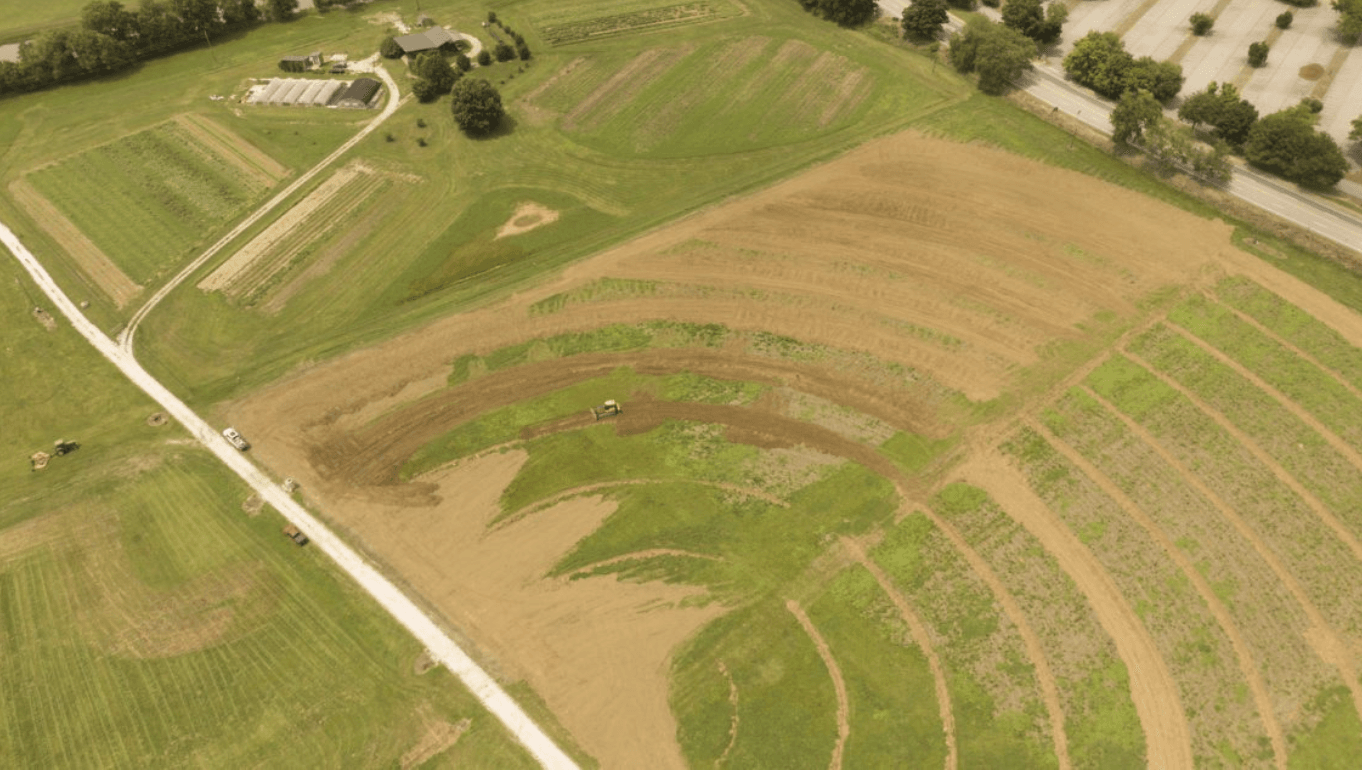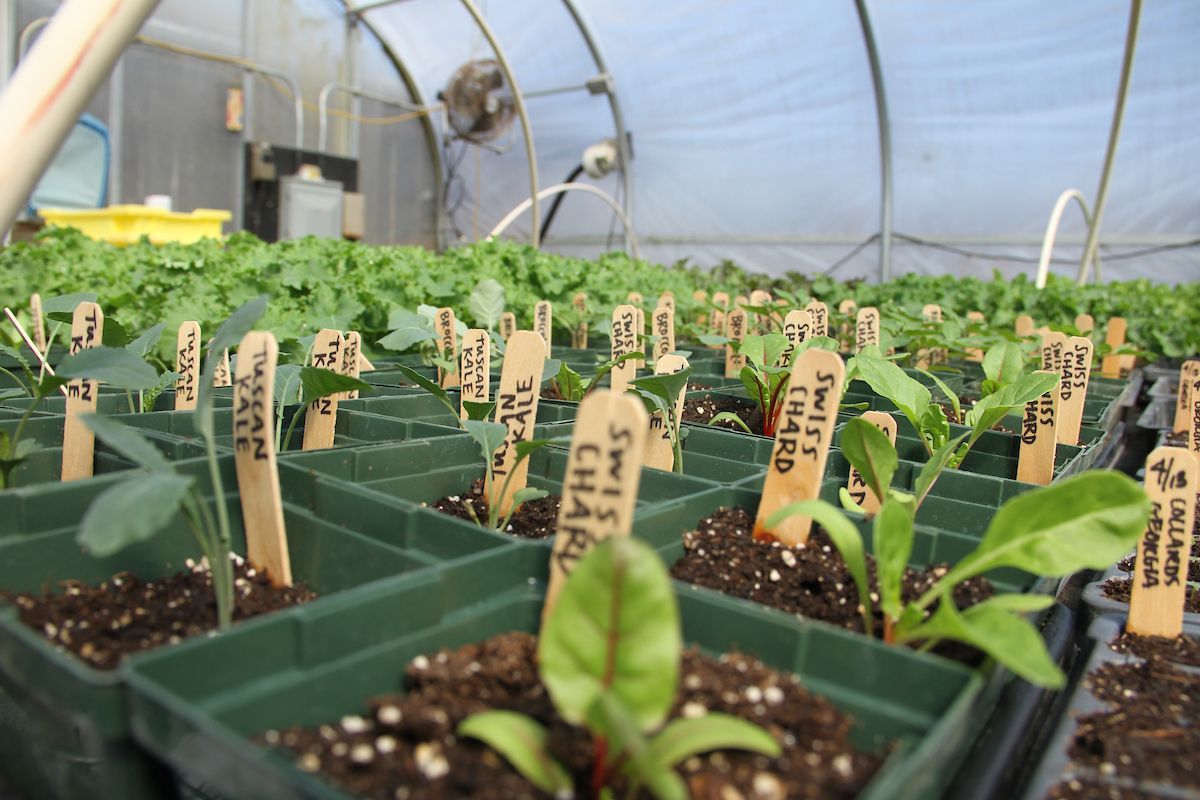
Back in 2018, Laura Lengnick, Glynwood’s Director of Agriculture, was invited to lead a community-based design process to reimagine the 80-acre farm on the main campus of Clemson University in South Carolina. Just last month, she was on site to see the first phase of the new design get underway: the installation of earthworks to improve drainage on one of three new climate-resilient farming systems planned for the site.
Laura worked with a group of university community members including administrators, faculty, staff, students and community partners to complete a concept design for the on-campus farm. This work was motivated by the university’s new strategic plan, and the design group was directed by the university’s Sustainability Commission to meet three overarching goals: 1) articulate the unique value of the site to the university community and the public; 2) identify a central research theme for the site; and 3) imagine new research and demonstration programs that would showcase South Carolina agriculture as a source of solutions to some of the most critical global challenges of our times: food security, natural resource quality and availability, biodiversity loss, and climate change.
Through a year-long collaborative process involving personal interviews, community surveys and brainstorming sessions, Multifunctional Agriculture was selected by the design group as the central theme for the farm. This theme offers an innovative, inspirational and ecologically-based agricultural focus while also providing flexibility in the kinds of education and research activities featured on the farm. The design group was also excited by the potential of the multifunctional agriculture theme to put the university in a position to take advantage of opportunities to advance agricultural climate solutions, support emerging ecosystem services markets, and promote new sustainable development strategies such as city-region food systems.
To support the central theme, the design group identified two integrative research themes that add significant value to the project: food and water. A focus on food systems enhances the potential to connect the farm to the campus community through the on-campus production, processing, preparation, and consumption of high quality, fresh, nutrient-dense foods. Like food, a focus on water is relevant to research and education programs university-wide, particularly since water – too much and not enough - has emerged as the critical near-term climate change adaptation challenge in both rural and urban areas of the U.S.
Laura’s work on this project is just one example of how Glynwood’s new Strategic Farm Initiatives Program is helping farmers in the Hudson Valley and beyond innovate new solutions to the burgeoning challenges of growing food in a changing climate. Click on the image below to learn more about Clemson’s new Resilient Agriculture Destination.

